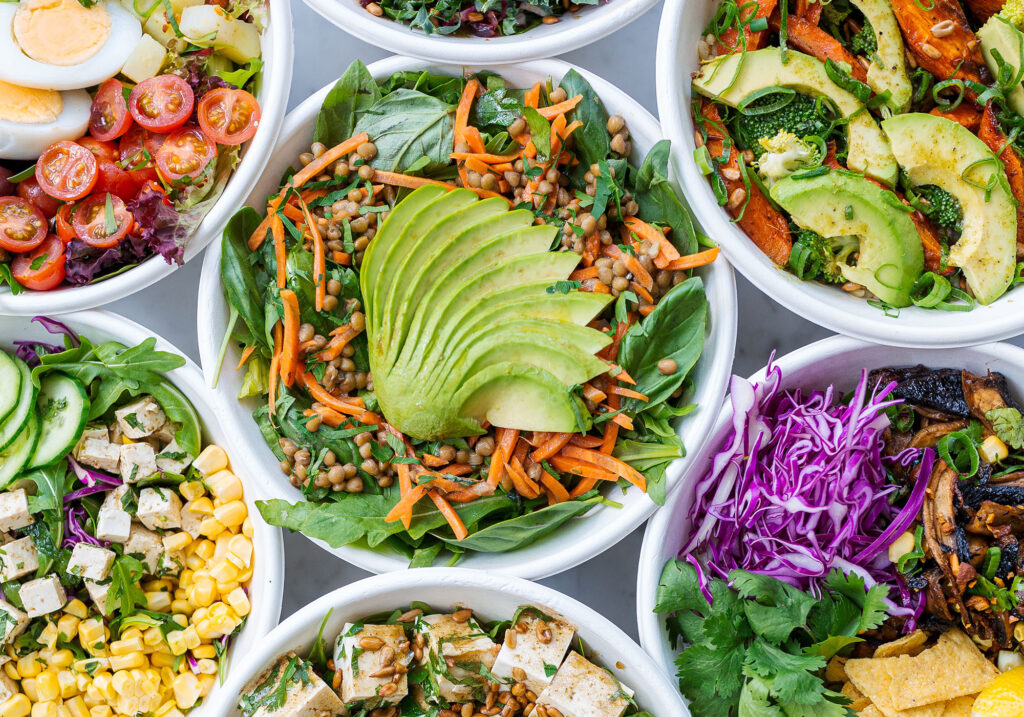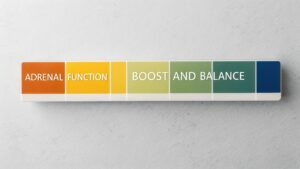I don’t know about you, but by the time spring comes around, I’m more than ready for sunshine and warmth (“warmth” being a relative term here in Illinois). I’m also ready to rethink those soups and stews that are a mainstay of winter dinner, and add in freshness, color, and spring flare to my meals. Bonus points if those spring foods can help me shake off the winter AND fight off depression and anxiety. Let’s talk about them:
- Berries – Berries are full of color (color = antioxidants that fight stress and depression) and taste amazing.3 Adding berries to salads, oatmeal, pancakes, yogurt, salsas, desserts, or as a midday snack is a great way to bring the rainbow to your plate and increase your intake of those superhero antioxidants.
- Dark leafy greens – Decreased levels of folate have been found to increase anxiety and depression symptoms in some people. Dark leafy greens are a great source of folate, and springtime is the perfect time of year to add them to your menu. Great choices of leafy greens include arugula, kale, watercress, romaine lettuce, dandelion greens, and spinach.
- Fresh culinary herbs – Waiting all winter for the fresh culinary herbs to show up is like waiting for the first day you don’t have to wear a coat! The patience pays off when the rosemary, holy basil (tulsi), and other fresh herbs show up at the market or in the garden. Rosemary has been found to be effective against not only anxiety and depression, but also increase memory, and improve sleep quality4. Holy basil is a calming herb that is found as a tea or in many culinary dishes and has therapeutic effects on mood, cognitive function, and enhanced stress resilience5.
- Don’t skip the protein – The central nervous system cannot function properly without the amino acids that are found in protein-rich foods. These amino acids are used to create the neurotransmitters that our brain uses to make the chemicals that regulate mood, sleep, and stress response. Tyrosine, phenylalanine, and tryptophan are three important amino acids when it comes to mood. These amino acids can be found in protein-rich foods such as legumes, dairy, eggs, turkey, chicken, and beef, and tofu.
- Enjoy some dark chocolate – Is it a surprise that many of us want chocolate when we are feeling down? Nope! Chocolate is rich in magnesium which plays a role in the neurotransmitter and stress pathways we depend on to regulate mood and stress response6. In one study, anxiety and depression symptoms were significantly improved for the participants that consumed dark chocolate three days in a row7.
- Fatty Fish – Fatty fish are packed with omega 3 fatty acids. Studies have found that an increased intake of fatty fish, such as salmon, herring, tuna, sardines, and herring correlates to reduced levels of anxiety and depression8. A boring fish dish can become a spring food celebration with the simple addition of sauteed leafy greens and fresh culinary herbs.
As the weather begins to warm, the days become longer, and the flowers of spring start to bloom, eat these delicious foods to boost your mood! Combine a few of the options to make a fun, colorful dish, add them to your mealtime favorites, or make a delicious dessert; don’t forget to include the dark chocolate.
Tessa O’Toole MS CNS LDN
Resources:
- Gaby, A. R. (2017). Nutritional medicine. Frtiz Perlberg Publishing: Concord, NH.
- Fava M, Mischoulon D. Folate in depression: efficacy, safety, differences in formulations, and clinical issues. J Clin Psychiatry. 2009;70 Suppl 5:12-7. doi: 10.4088/JCP.8157su1c.03. PMID: 19909688
- Gautam, M., Agrawal, M., Gautam, M., Sharma, P., Gautam, A. S., & Gautam, S. (2012). Role of antioxidants in generalised anxiety disorder and depression. Indian journal of psychiatry, 54(3), 244–247. https://doi.org/10.4103/0019-5545.102424
- Nematolahi P, Mehrabani M, Karami-Mohajeri S, Dabaghzadeh F. Effects of Rosmarinus officinalis L. on memory performance, anxiety, depression, and sleep quality in university students: A randomized clinical trial. Complement Ther Clin Pract. 2018 Feb;30:24-28. doi: 10.1016/j.ctcp.2017.11.004. Epub 2017 Nov 13. PMID: 29389474.
- Jamshidi, N., & Cohen, M. M. (2017). The Clinical Efficacy and Safety of Tulsi in Humans: A Systematic Review of the Literature. Evidence-based complementary and alternative medicine : eCAM, 2017, 9217567. https://doi.org/10.1155/2017/9217567 (5)
- Cuciureanu MD, Vink R. Magnesium and stress. In: Vink R, Nechifor M, editors. Magnesium in the Central Nervous System [Internet]. Adelaide (AU): University of Adelaide Press; 2011. Available from: https://www.ncbi.nlm.nih.gov/books/NBK507250/
- Lua, P.L., & Wong, S.Y., (2012) Dark Chocolate Consumption on Anxiety, Depression and Health Related Quality of Life of Patients with Cancer: A Randomised Clinical Investigation [PDF]. The Malaysian Journal of Psychiatry. Retrieved from http://www.mjpsychiatry.org/index.php/mjp/article/viewFile/170/135
- Grosso G, Galvano F, Marventano S, Malaguarnera M, Bucolo C, Drago F, Caraci F. Omega-3 fatty acids and depression: Scientific evidence and biological mechanisms. Oxid Med Cell Longev. 2014;2014:313570. doi: 10.1155/2014/313570. Epub 2014 Mar 18. PMID: 24757497; PMCID: PMC3976923.
Tessa




